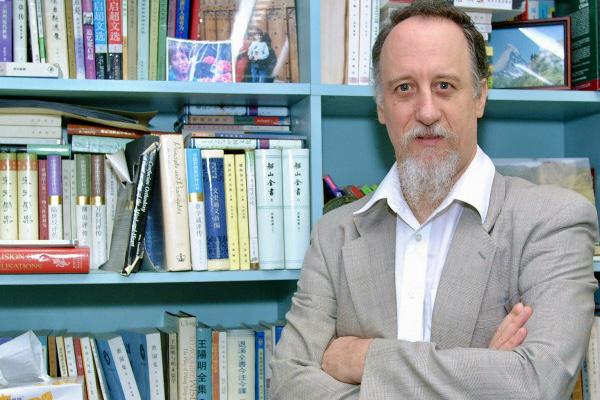The relationship between culture and theology is as intricate as it is essential. As theology shapes and is shaped by the cultural frameworks in which it operates, cultural dynamics and transformations can be a lens for theology transformation.
In his presentation at the seminar and workshop "Theological Reception Histories in Modern & Contemporary China" conducted on December 20, 2024, Professor Lauren Pfister explored the cultural understanding of theological worldviews and highlighted four corporate transformative dimensions of culture in the development of Chinese Theology.
Professor Pfister emphasized the importance of overcoming binary overgeneralizations about "Chinese culture" and "Western culture." Drawing from Rosenstock-Huessy’s The Christian Future, he defined culture as “the dynamic and tensed time-space unity constituted by the values and institutions by which people live.” This definition expands to describe culture as a unity involving two times (historical recollections and future projections) and two spaces (inward affirmations and outward rejections). It is a dynamic and tense unity, grounded in the values and institutions shaping people’s lives.
Cultural times and spaces are united through intersubjective efforts to justify and articulate values central to cultural identities. These values are further solidified through communal efforts to institutionalize them via networks of organizations and technologies that sustain chosen ways of life. Pfister noted that culture is a complex, living entity capable of both thriving and declining.
Christian theology, according to Pfister, operates within this cultural whole. It provides cultural realms where one’s “absolute passion for the Absolute” (as described by Kierkegaard) is articulated and realized through written and lived expressions of faith.
Such theology creates shared futures extended into eternity, honors and interprets revealed pasts encompassing the universe, inspires communal worship and creedal agreements that shape intersubjective cultural identities and addresses cosmic challenges, spiritual threats, and forces that could undermine those identities.
Pfister also identified varying cultural dimensions addressed by different types of Christian theology, including biblical, systematic, practical, cross-cultural, historical, and philosophical theologies. However, he warned that some theological expressions risk becoming culturally irrelevant or pedagogically harmful. These include academic theology that fails to engage Christian communities, insensitive translations of theological works, and a lack of understanding regarding the role of internet connectivity in cultural comprehension.
Cultural transformations add further complexity to theology. The earlier definition of culture, Pfister argued, should include three modal expressions of cultural values and institutions: when they are adopted playfully (without lasting consequences), when taken seriously (often with lasting consequences), and when they become unavoidably necessary (for cultural survival).
When cultures and subcultures undergo transformative changes, these shifts can lead to profound metamorphic changes, resulting in entirely new cultural forms—what Pfister referred to as "the transformative dimension."
For Chinese theology, Pfister believes that four corporate transformative dimensions should be taken seriously.
These include theological reflections applied to nuclear and extended family circles, addressing socio-cultural realities and stresses such as those related to singleton children, divorce, and modern family structures. Also, theological reflections within spiritual communities (church "families") and their related institutions, focus on how to fulfill the expression of the "filling of the Spirit" through mutual submission.
Additionally, theological reflections engage with Chinese linguistic contexts where languages other than Mandarin are used for Christian subcultural expression, such as Cantonese, Hakka, Korean, Miao, Nosu, Lisu, etc., by Chinese citizens within mainland Chinese culture. Finally, theological reflections consider Chinese Christians living in non-Chinese mainline cultural settings while politically led by the CCP and institutionalized with public systems.












